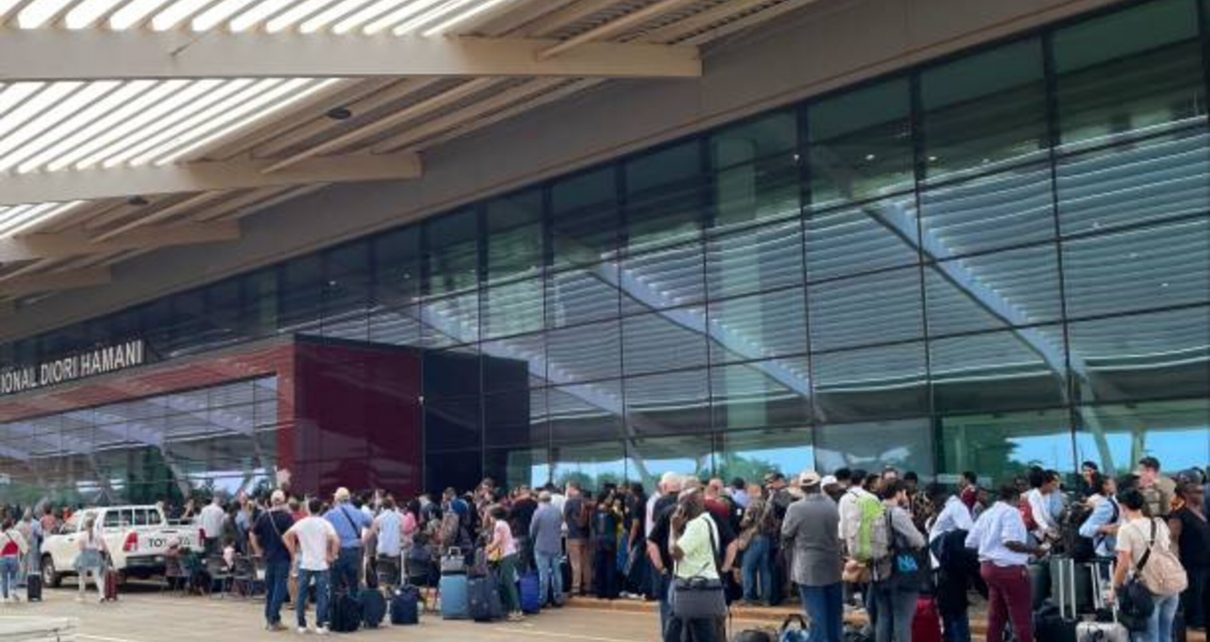A delegation of senior Nigerian Islamic scholars announced on Sunday that coup leaders in Niger are receptive to diplomatic efforts to resolve the current standoff with West Africa’s regional bloc. This development follows a meeting with the junta in Niamey.
The visit comes as the Economic Community of West African States (ECOWAS) considers various options, including potential military intervention, to reinstate civilian rule in Niger. The country experienced a coup on July 26, resulting in the removal of President Mohamed Bazoum. This incident marks the seventh coup to take place in West and Central Africa within a span of three years.
In a clear demonstration of the bloc’s commitment to seeking a peaceful solution, Bola Tinubu, the Chairman of ECOWAS and the President of Nigeria, endorsed the delegation’s mission to Niamey. The delegation of Islamic scholars, who had pledged to promote dialogue, met with junta leader General Abdourahamane Tiani for an extended discussion, according to Sheikh Abdullahi Bala Lau, the head of the delegation.
Lau stated on Sunday, “He [General Tiani] said their doors were open to explore diplomacy and peace in resolving the matter.”
General Tiani highlighted the historical bonds between Niger and Nigeria during the meeting, underscoring that the two nations are not only neighbours but also brothers and sisters who should amicably resolve their issues. While there was no immediate response from the junta regarding the meeting, General Tiani’s reported comments suggest a willingness to engage in negotiations.
The junta had previously rebuffed diplomatic overtures from ECOWAS, the United States, and other entities, raising concerns about the potential for further conflict in the impoverished Sahel region of West Africa. This region is already grappling with a deadly Islamist insurgency.
As diplomatic efforts faced challenges last week, ECOWAS activated a standby military force, to be deployed as a last resort if negotiations prove unsuccessful. Despite this, the bloc is currently prioritizing continued negotiations. The bloc’s parliament announced on Saturday that it intends to seek Tinubu’s permission, as the rotating chairman of the bloc, to travel to Niger for further discussions.
While the possibility of military intervention by ECOWAS remains, such action could strain regional relations further, given the expressed support for Niger’s new military leadership by juntas in Mali, Burkina Faso, and Guinea. General Tiani’s delegation, led by his defence chief General Moussa Salaou Barmou, visited the Guinean capital of Conakry on Saturday to express gratitude for the support received from leaders there.
The outcome of these developments holds significance not only for Niger, a major uranium producer and a Western ally in the fight against Islamist extremism but also for the influence of various global powers with strategic interests in the region. The presence of U.S., French, German, and Italian troops in Niger, combined with the escalating insecurity and diminishing democracy, has created an environment where local factions linked to al Qaeda and Islamic State have caused extensive casualties and displacement.
Simultaneously, Russian influence has grown amid mounting insecurity and weakened democratic structures, as regional leaders seek new partnerships to restore stability. Western powers are concerned that Russia’s sway could expand further if the Niger junta follows the path of Mali and Burkina Faso, which expelled the troops of their former colonial ruler, France, following coups in those nations.


